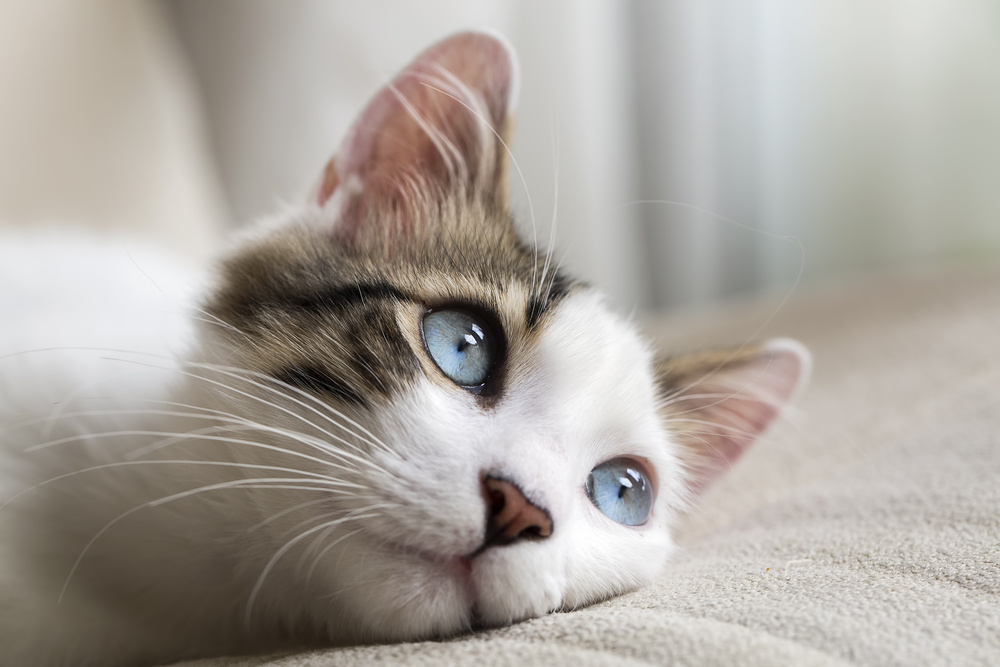
Stress & Skin Health
It is important to recognize the interplay between stress and dermatological issues, as addressing stress-related factors is essential for long-term skin health and overall well-being in pets.
Stress plays a significant role in skin health, influencing the development and severity of dermatological conditions in companion animals. Anxiety, environmental changes, and behavioral stressors can lead to self-inflicted trauma, impaired skin barrier function, and increased susceptibility to infections.
How Stress Affects Skin Health in Pets
1. Increased Pruritus & Self-Trauma
Stress and anxiety can trigger compulsive licking, scratching, or chewing, leading to:
- Lick granulomas (acral lick dermatitis)
- Hot spots (moist dermatitis)
- Interdigital cysts and secondary infections
2. Impaired Skin Barrier Function
Chronic stress can weaken the skin’s natural defences, making pets more susceptible to:
- Increased transepidermal water loss (TEWL) and dry, flaky skin
- Allergic flare-ups and heightened sensitivity to irritants
- Opportunistic infections (bacterial, fungal, or parasitic)
3. Hormonal & Immune System Disruptions
Stress can alter cortisol levels, which may:
- Suppress the immune system, delaying wound healing
- Increase inflammation, exacerbating allergic skin diseases (atopic dermatitis, food allergies)
- Affect sebaceous gland activity, leading to seborrhea (oily or dry skin conditions)
4. Gastrointestinal & Nutritional Impacts on Skin
Stress-induced digestive issues, such as intestinal dysbiosis and reduced nutrient absorption, can result in:
- Dull, brittle fur and excessive shedding
- Compromised skin hydration and elasticity
- Exacerbation of inflammatory skin conditions
Managing Stress-Related Skin Conditions
1. Identifying & Addressing Underlying Stressors
- Evaluate environmental stressors (new pets, moving, loud noises, separation anxiety)
- Assess behavioral patterns and provide enrichment, training, and calming interventions
- Consider pheromone therapy or behavioral support for anxious pets
2. Supporting the Skin Barrier & Hydration
- Use moisturizing and barrier-repair products to strengthen the skin’s defenses
- Incorporate omega-3 to support skin hydration and elasticity
- Choose gentle, non-irritating topical treatments to reduce itching and inflammation
3. Reducing Pruritus & Self-Trauma
- Implement anti-itch solutions (topical sprays, mousse, or medicated shampoos)
- Address underlying allergies with appropriate dermatological treatments
- Use protective measures (E-collars, bandages) to prevent excessive licking or scratching
4. Strengthening Immune & Gut Health
- Support the gut-skin axis with probiotics and balanced nutrition
- Address food sensitivities that may contribute to dermatological flare-ups
- Monitor for endocrine imbalances (hypothyroidism, Cushing’s disease) that affect skin health
Product selection for Stress-Related Skin Conditions
Managing stress-related skin issues requires products that soothe, protect, and support skin health without compromising the natural skin barrier. Here are the products to keep on hand:
Dermoscent AromaCalm is a calming dermatological solution designed to support pets experiencing stress-induced skin imbalances. Formulated with soothing essential oils, AromaCalm helps reduce anxiety while promoting skin hydration and barrier function.
Dermoscent Essential 6 Spot-On is a skin-nourishing spot-on treatment enriched with essential fatty acids (omega-3 & omega-6) to help restore skin balance, reduce inflammation, and strengthen the natural skin barrier.
